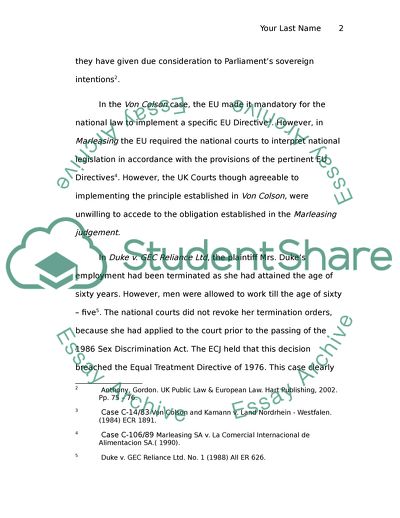Cite this document
(Statutory Interpretation of the Human Rights Act 1998 by the UK Courts Essay, n.d.)
Statutory Interpretation of the Human Rights Act 1998 by the UK Courts Essay. https://studentshare.org/law/1709944-overall-statutory-interpretation-in-the-uk-has-been-largely-unaffected-by-either-eceu-law-or-the-passing-of-the-human-rights-act-1998-discuss
Statutory Interpretation of the Human Rights Act 1998 by the UK Courts Essay. https://studentshare.org/law/1709944-overall-statutory-interpretation-in-the-uk-has-been-largely-unaffected-by-either-eceu-law-or-the-passing-of-the-human-rights-act-1998-discuss
(Statutory Interpretation of the Human Rights Act 1998 by the UK Courts Essay)
Statutory Interpretation of the Human Rights Act 1998 by the UK Courts Essay. https://studentshare.org/law/1709944-overall-statutory-interpretation-in-the-uk-has-been-largely-unaffected-by-either-eceu-law-or-the-passing-of-the-human-rights-act-1998-discuss.
Statutory Interpretation of the Human Rights Act 1998 by the UK Courts Essay. https://studentshare.org/law/1709944-overall-statutory-interpretation-in-the-uk-has-been-largely-unaffected-by-either-eceu-law-or-the-passing-of-the-human-rights-act-1998-discuss.
“Statutory Interpretation of the Human Rights Act 1998 by the UK Courts Essay”. https://studentshare.org/law/1709944-overall-statutory-interpretation-in-the-uk-has-been-largely-unaffected-by-either-eceu-law-or-the-passing-of-the-human-rights-act-1998-discuss.


